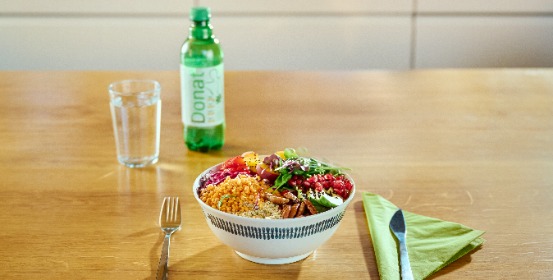People usually believe that the food they consume finds its way out of their body with the next bowel movement. However, it can actually take much longer for the food to get fully digested and excreted. The whole transit time depends on each individual person, but usually takes anywhere between 24 to 72 hours. It is important to know that different foods break down and get digested in different ways, which is why some leave your body faster than others.
The factors that determine the length of this transit time include not only the type and amount of food that was eaten, but also your activity level, general health, stress that you might be experiencing, and your characteristics.
If you are worried about your digestion, there are some steps you could follow to speed up the process. Keep reading to learn how to digest food faster and other important bits of information related to your digestion.
What Is Slow Digestion
In order to know if you are indeed suffering from a slow metabolism, you first have to know what this actually means. In general, we speak of slow digestion if stool stays in your colon for a few days (generally more than 72 hours) and you are unable to have a regular bowel movement.

The symptoms that accompany slow digestion or constipation include bloating, gas, nausea and burping. Moreover, you might be feeling low on energy and gain weight faster than usual. Untreated slow digestion can negatively affect your entire body and lead to other medical conditions. Moreover, food waste stuck in your colon for a longer period of time can get reabsorbed into the bloodstream and irritate your body.
This is why it is extremely important to identify your problem as soon as possible, make necessary lifestyle changes, or seek medical help if you cannot solve it on your own.
Foods for Digestion Improvement
The first step you could take is to enrich your diet with foods that will help you digest other foods faster, such as the following:
1. Proteins with a shorter digestion time
Proteins found in different types of meat need a lot of time to properly digest so replace them with foods like:
- tempeh: tempeh is made with the help of a fermentation process and its probiotic content can alleviate symptoms of indigestion and improve nutrient absorption;
- salmon: the omega-3 in salmon can help reduce inflammation in your gut and improve the digestive process
- beans, especially black and lima beans: beans contain insoluble fibre that cannot be digested by your body but it helps digestion as the stool is able to pass through your gut more quickly;
- lentils: lentils are high in fibre that adds weight to your stool, promotes healthy gut bacteria and makes sure you have regular bowel movements;
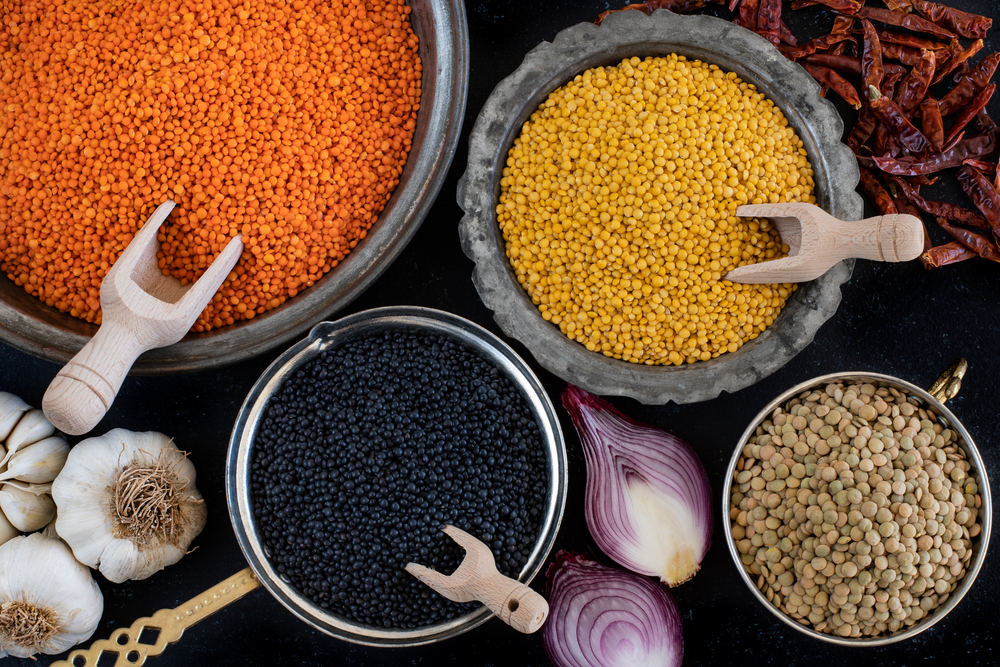
- spirulina: besides being an amazing superfood that you can easily add to your morning smoothie, spirulina contains chlorophyll, which simplifies the passage of waste and stimulates good gut bacteria.
2. Vegetables – the heroes of quick digestion
Foods for digestion improvement also include green vegetables such as broccoli, Brussels sprouts, spinach, collard greens, kale, artichokes, and the like. They contain a lot of magnesium and fibre and promote good bacteria in your gut, thus making sure your digestive system stays healthy.
Opt for fermented vegetables that will get your digestive tract up and running in no time:
- natto (fermented soybeans): if you have never heard of this amazing fermented food, make sure you quickly add it to your diet, as its rich probiotic content can improve digestive health, helping you get regular bowel movements while reducing constipation;
- kimchi (fermented cabbage): kimchi contains probiotics and a lot of fibre that promote gut health;
- sauerkraut: sauerkraut is another rich source of probiotics and various enzymes that help your body break down nutrients into smaller molecules that are easier to digest.
3. Speed up your digestion with fruits
Many different fruits are rich in fibre while at the same time containing vitamins and minerals, such as vitamin C and potassium. All this is good for your digestive health so make sure you add the following to your diet:
- apples (unpeeled)
- papaya
- mango
- pineapple
- bananas
- kiwi
Pay attention to the fact that citrus fruits are acidic and can irritate the stomach lining so make sure you take it easy if you are already experiencing such problems.
4. Dairy products that are good for your digestive system
Consuming too much dairy can be problematic as it is usually high in fat and can lead to digestive problems. You should definitely avoid dairy products if you are not sure whether you are lactose intolerant as they can otherwise damage your digestive system.
However, if you are able to digest dairy, adding yoghurt and kefir to your diet can be beneficial for your gut health, as they both contain probiotics. Probiotics feed your good gut bacteria and improve your digestive health.
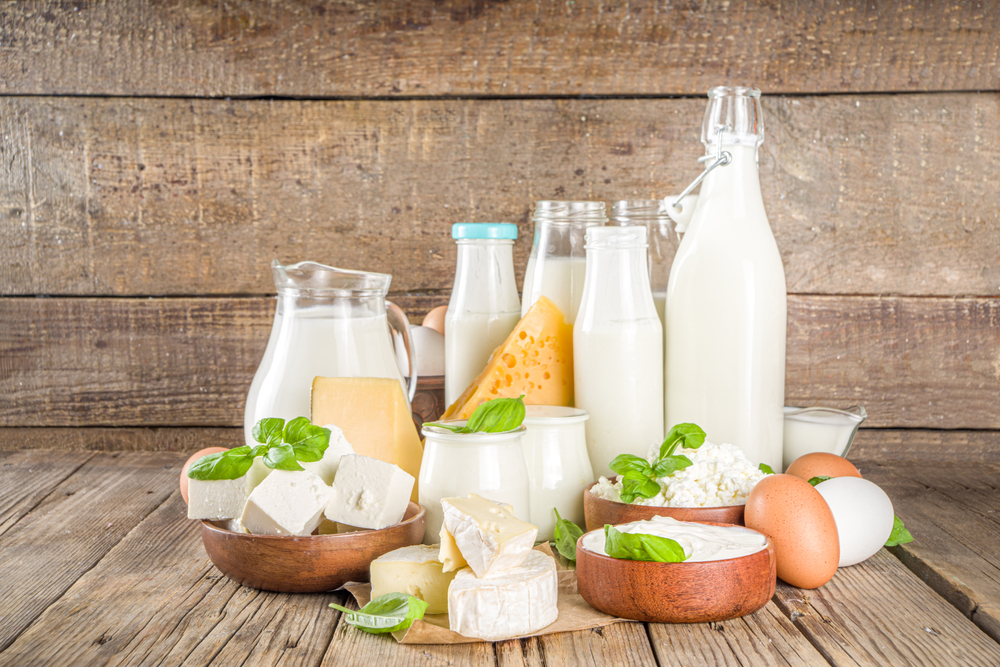
5. Whole grains – a healthy dose of fibre for healthy digestion
Whole grains are high in fibre, which is known to help digestion. Your body takes longer to break them down and this helps it to control blood sugar levels as well. Moreover, fibre adds bulk to your stool and therefore makes it easier to pass through your body.
There are many whole grain options out there waiting to be added to your diet:
- oats
- quinoa
- brown rice
- whole wheat bread
- barley
- bran flakes
Foods That Digest Quickly
Now that we have taken a look at foods for digestion improvement, let us go through some foods that digest quickly. These are especially recommended for people suffering from bloating and gas as they should help you have that desired bowel movement quicker.
Such foods normally differ from the ones for digestion improvement in the fact that they tend to be low in fibre. The reason for that is that fibre (despite being healthy) does not get broken down by your body and passes through your digestive system undigested. Following a low-fibre diet decreases the amount of such undigested waste in your colon and can speed up your digestion.
If you want to incorporate foods that digest quickly into your diet, you should still opt for the ones that represent a healthy choice. For example, simple sugars can be easy to digest but are not something you should be adding to your diet for obvious reasons.
Therefore, you should rather focus on the below-mentioned ones:
1. Canned or cooked fruits and vegetables
Whole fruits and vegetables are high in fibre, however, cooking them can decrease the fibre content. This is why cooked carrots, pears, etc. will pass through your colon quicker than raw fruits and veggies.
If you do not have time for cooking, you can find canned alternatives at your local grocery store even though preparing food yourself is a better choice.
2. Meat and protein
Protein like chicken, turkey, and fish (such as tuna) are easier to digest so stick to those if you cannot give meat up completely. When preparing meat, choose methods that are easier on the stomach (such as grilling, baking, poaching or broiling) instead of frying.
Moreover, lacto-ovo vegetarians can choose eggs, which are an amazing source of protein and minerals. They are also easily digested by your body and are appropriate even for those suffering from irritable bowel syndrome or other digestive problems.
3. Grains
As discussed above, whole grains are a recommended addition to your diet as they are a healthier version of grains. They also take longer to digest.
If you are looking for the ones that are easier to digest, you will have to choose from the following:
- white bread
- toast
- crackers
- low-fibre cereals
- processed cookies
- oatmeal
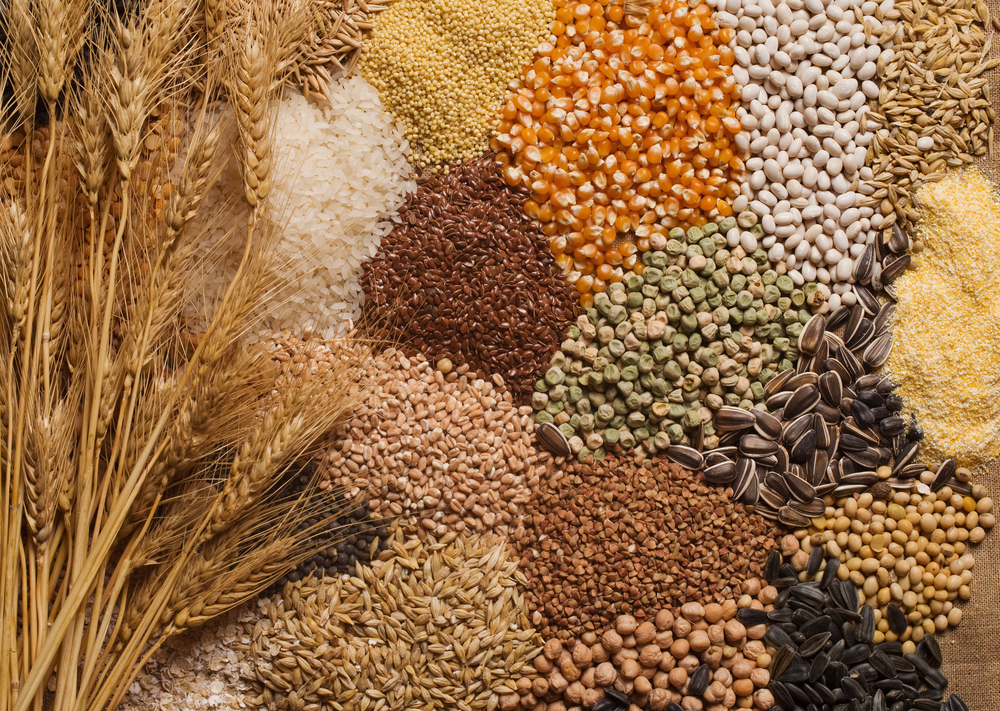
Items made of refined flours (such as white flour) do not include bran and germ, which is why they are easier to digest. Bear in mind that refined flours are not the best addition to a healthy diet, especially in large quantities.
4. Dairy products
Dairy is low in fibre and therefore easy to digest for most people. However, if you are lactose intolerant that is another story, as dairy can upset your stomach.
If you know your body has no problems digesting dairy, try drinking milk or having cheese, yoghurt, or cottage cheese as a snack.
5. Nuts and seeds
Nuts and seeds are known to help with an upset stomach and provide a boost to your digestive system. Moreover, the natural oils found in them have a positive effect on your digestion.
If you want to make them easier to digest, do not forget to soak them as this will remove the phytic acid that is indigestible for humans.
The best seeds to choose from include flax seeds, chia seeds, walnuts, and almonds.
6. Drinks
Well, it goes without saying that water is the easiest drink to digest, especially on an empty stomach as it simply passes through your body in almost a second. And what’s more – you can drink water AND also help you body speed up its digestion as well as get more minerals. How? By choosing Donat Mg, which is clinically proven to improve your digestive process, thus contributing to your wellbeing and strengthening your immune system.
You can also try fruit and vegetable juices without pulp, or prune juice, also known as the holy grail for problems with constipation.
Another trendy drink that is at the same time very easily digested is kombucha. This is basically a fermented tea made with special bacteria, sugar and yeast. Because of this process, kombucha contains probiotics that have a brilliant effect on your digestive system.
How Can I Digest Food Faster?
Now that you know basically everything there is to know about foods that promote digestion (and thus also your immune system) and the ones that are quick to digest, there are also some general tips you should be familiar with if you want to amp up your digestion.
So what can you do to make sure your digestive system is up and running and never causes you any problems?
1. Exercise
There are so many advantages to being active, and an improved digestive system is one of them. If you exercise for 30 minutes per day, food and digested material travel through your body when your muscles contract (i.e. peristalsis). By staying inactive, peristalsis slows down and has a negative impact on the speed of digestion. So make sure you get up and move if you are suffering from slow digestion!

2. Fibre or no fibre?
There are a lot of misinterpretations when it comes to fibre and digestion. So to clarify it once more: fibre is great for your digestive health as it moves through your body undigested and adds bulk to your stool, therefore making it heavier and easier to pass. However, since fibre is difficult to digest, it can slow down the transit time. This is why a low-fibre diet is optimal if you would like to speed up the whole process, even though it is not the healthier choice in the long run.
Bear in mind that a quick addition of fibre to your diet can lead to gas, cramps and bloating so take your time introducing such foods to your diet, especially if you are not used to them. As fibre absorbs water in order to add mass to your stool, do not forget to drink more as you might otherwise get constipated.
3. Add probiotics
Probiotic foods such as yoghurt, sauerkraut, soft cheeses, etc. are full of live bacteria cultures that do wonders for your gut and promote healthy digestion.
Once again: if you notice any symptoms of lactose intolerance, cut down on yoghurt and other dairy products so you do not end up bloated, gassy, and in general pain because of digestive problems.
If you would like to amp it up, consider taking a probiotic supplement but find a good one. In general, it should include the genus, species, and strain of the probiotic on the packaging. The latter is very important as people react to different strains of bacteria in different ways, which is why it is good to choose one including several different strains to make sure your body will accept it easily.
However, probiotic supplements can also be costly, so try adding natural ones to your diet first if you want to save a little money.
4. Eat ginger
Ginger has a long tradition of being a great help for digestion, as it stimulates the release of enzymes found in your digestive tract that make digestion easier and more efficient. Moreover, it is known to increase the contractions of muscles in your stomach, which is why the food you eat can move to your small intestine faster.
5. Cut down on meat
Eating less meat is good for your general health as well as your digestion. Meat can slow down peristalsis as it takes a lot of time for it to move through your digestive tract. This is why meat (especially red meat, which is rich in iron and high in fat) can make you constipated and slow down your metabolism.
6. Hydrate
Drink more water! Water is good for so many different reasons and one of them is that it is also helpful for your digestion. The reason behind this is that water keeps your stool moist and therefore improves transit time.

Additionally, try mineral water, which increases the volume of the intestinal content and stimulates digestion.
7. Avoid problematic foods
If you want to digest food faster, avoid fatty and fried foods at all cost. They do not only take longer to digest but can also lead to other digestive problems such as acid reflux and heartburn.
The same goes for spicy foods as they can irritate your throat and esophagus, again causing acid reflux and heartburn as well as slowing down your digestion.
8. Rest
Sleep is extremely important for good digestive health, as it gives your organs much-needed time to repair, thus increasing your body’s ability to quickly and efficiently digest food.
Paying attention to your sleep hygiene (we are not just talking clean sheets here!) and getting enough rest can therefore significantly improve your digestion.
Pro tip: do not go to sleep immediately after a meal, otherwise you might have trouble falling asleep or get woken up by an upset stomach. You should rather wait at least two hours, as this will give your body time to digest food.
9. Change your eating habits
Along with swapping problematic foods with the ones good for your digestion you should also think about your eating habits. Do you tend to overeat, eat late at night, or skip meals?
The right approach if you want to digest food faster is to eat small portions several times per day. Do not overburden your stomach with large fatty meals but focus on eating less more frequently as such meals are easier to digest.
Additionally, do not overstress your body by eating foods with longer digestion times first thing in the morning or before going to bed (unless you want to be hit by insomnia). The goal would be to eat from 4 to 5 smaller meals per day, full of healthy foods that digest quickly.
Moreover, do not just gulp your food but focus on chewing it properly. Chewing is extremely important for good digestion as the digestive process actually starts in your mouth. This is when the food you consume gets mixed with saliva that starts breaking it down.
10. Take supplements
If probiotic supplements and all the other above-mentioned tips still leave you constipated and suffering from slow digestion, try over-the-counter supplements with digestive enzymes. They can help speed up your digestion by providing your body with enzymes it might be lacking. Such enzymes break down food and make it easier for your body to absorb and digest.
Additionally, lactase supplements help in the digestion of lactose and are a must if you suspect you might be lactose-intolerant and do not want to completely cut down on dairy products.
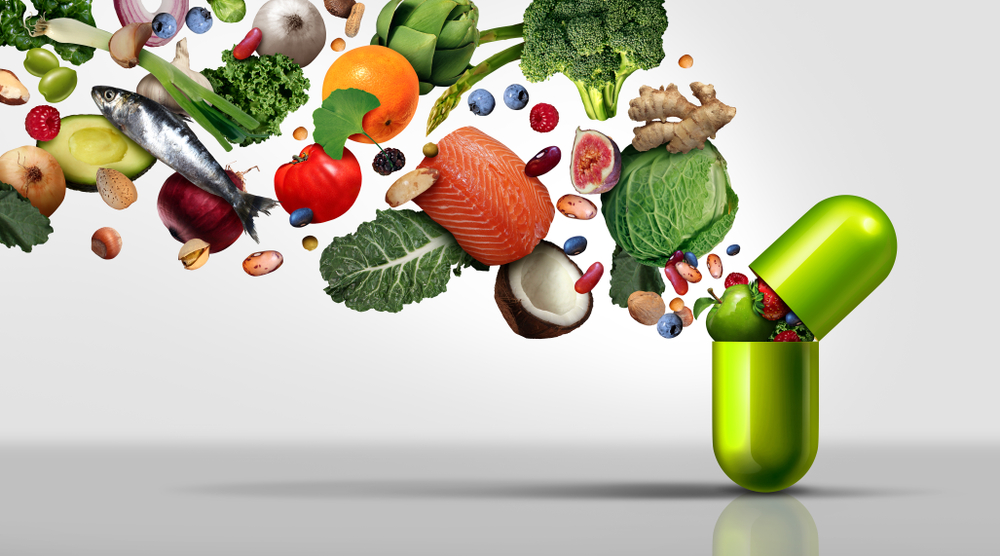
Peppermint oil supplements are also believed to improve digestion, even though there is no firm evidence confirming this yet. However, it cannot hurt to add them to your diet if you are curious about their benefits.
How to Digest Food Faster After a Heavy Meal?
Have you overindulged a bit and are wondering how to digest food faster after a heavy meal? Here are some tips if you are looking for a quick fix:
1. Drink herbal tea
Your grandmother has probably always promoted herbal tea as the solution to all problems. Menstrual cramps? Drink herbal tea! Suffering from a breakup? Herbal tea! Feeling full? Yes, herbal tea is the answer!
Drinking herbal tea on a full stomach (when you probably cannot consume much more) can help the food move through your digestive tract. Opt for chamomile tea and similar kinds and get ready to feel better soon!
2. Try peppermint
If you immediately regret eating a heavy meal and can already see a sleepless night ahead of you, suck on a peppermint candy right after the meal. The menthol in peppermint will help alleviate problems such as gas, indigestion, and nausea that all commonly appear with overeating.
3. Apple cider vinegar saves the day
Apple cider vinegar does not only work wonders when it comes to cleaning your house but also if you want to clean your body, all thanks to the probiotics it contains! Put one tablespoon of apple cider vinegar in a glass of water and drink it for instant digestion relief.
Those three tips should give you some relief after overeating. However, bear in mind that such overindulgence is definitely not good for your stomach and you should get rid of this habit soon.
Conclusion
To conclude, follow the tips mentioned in this article as prevention and solution for your problems. By adding foods for digestion improvement, focusing on the ones that digest quickly, and eliminating problematic foods from your diet, your digestion should run smoothly. Additionally, do not neglect regular exercise, enough sleep, hydration, and other tips for even better results.
If you still cannot get rid of problems with slow digestion after a while, consult your doctor to see what is going on with your body.
Frequently Asked Questions
1. How long does it take to digest food?
The time it takes for the food to pass through our body, i.e. the time from consuming the food to its excretion, is usually between 24 and 72 hours.
2. What does slow digestion mean?
Slow digestion means that the time of the food transit is longer than a few days, i.e. that the person does not have regular bowel movements.
3. Which foods improve digestion?
Digestion is accelerated by salmon, black beans, lentils, kimchi, sauerkraut, pineapple, bananas, kiwi, dairy products and whole-grain cereals.
4. Which foods are easy to digest?
Cooked fruit and vegetables, chicken, turkey, fish, various cereals, dairy products, nuts, water, Donat natural mineral water and kombucha stand out among easy-to-digest foodstuffs.
5. Which activities accelerate digestion?
Besides changing our dietary habits, we can also have an impact on our digestion by exercising regularly, drinking enough water, resting well, chewing our food well and taking different food supplements.
Choose chapter:





